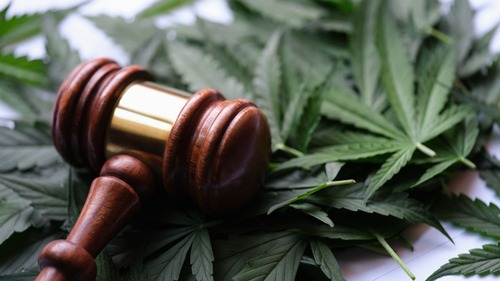At Cowboy Law Group, we are dedicated to providing exceptional legal representation for individuals facing criminal charges in The Woodlands and surrounding areas. Our firm specializes in criminal defense, including drug crimes, DWI, and juvenile criminal defense, ensuring our clients receive the highest level of legal support. We believe in fighting tirelessly to protect your rights and restore your good name, no matter how complex the case.
Navigating Texas marijuana laws can be a daunting task, as the state’s stance on cannabis remains strict despite evolving public opinion and legislative changes. While medical cannabis is available under the limited Texas Compassionate Use Program, recreational marijuana remains illegal, with harsh penalties for possession, cultivation, and distribution. The legal landscape is further complicated by the overlap of state and federal laws, leading to confusion about what is permitted and what could result in criminal charges
In this blog, we explore Texas marijuana laws, potential defenses, and recent legislative efforts, highlighting the importance of working with an experienced drug crimes attorney in The Woodlands to navigate complex cannabis-related charges.
Current Texas Marijuana Laws
Understanding Texas marijuana laws is crucial for anyone involved with cannabis, whether for medical or personal use. The state has strict regulations that dictate what is legal and illegal regarding marijuana possession, cultivation, and distribution.
Possession Penalties
Texas classifies marijuana possession under several penalty groups. Possessing less than two ounces of marijuana is a Class B misdemeanor, which can result in up to 180 days in jail and a fine of up to $2,000. If you possess between two and four ounces, the offense escalates to a Class A misdemeanor, leading to up to one year in jail and a fine of $4,000. Possession of larger amounts can result in felony charges, with penalties increasing significantly based on the quantity.
The penalties vary depending on how much cannabis you have. For example:
- Less than 2 ounces: Class B misdemeanor
- 2 to 4 ounces: Class A misdemeanor
- 4 ounces to 5 pounds: State jail felony
- 5 to 50 pounds: Third-degree felony
- More than 50 pounds: Second-degree felony
Understanding these classifications is vital, as they determine the legal consequences you may face if charged with marijuana possession in Texas.
Cultivation and Distribution Laws
Texas marijuana laws strictly prohibits the cultivation of marijuana without proper authorization. Cultivating any amount of cannabis is considered a felony offense. The penalties for cultivation can vary based on the number of plants and the intent to distribute. Even a small number of plants can lead to serious legal repercussions, including significant fines and lengthy prison sentences.
The impact of cultivation on your criminal record can be severe. A felony conviction can lead to long-lasting consequences, including difficulty finding employment and housing. It is essential to understand the risks associated with both cultivation and distribution of marijuana in Texas.
Medical Marijuana Program
Texas has a limited medical marijuana program known as the Texas Compassionate Use Program. This program allows patients with qualifying medical conditions to access low-THC cannabis oil. However, the eligibility criteria are strict, and only certain conditions, such as epilepsy and multiple sclerosis, qualify for treatment under this program.
The difference between regulated medical cannabis and unregulated marijuana is significant. Patients using cannabis under the Compassionate Use Program are protected from prosecution, while those using unregulated products face the risk of criminal charges.
Cultivation and Distribution Laws
In Texas, marijuana cultivation and distribution are strictly prohibited, with severe legal consequences for those caught violating these Texas marijuana laws.
Cultivation Penalties
Cultivating marijuana in Texas is illegal and carries severe penalties. Under Texas law, growing cannabis can lead to serious criminal charges. If you are caught cultivating fewer than 12 plants, you may face a Class A misdemeanor. This can result in up to one year in jail and fines up to $4,000. If you cultivate 12 or more plants, the charges escalate to a felony. The severity of the charge increases based on the number of plants, with potential penalties including significant prison time and hefty fines.
The impact of cultivation on your criminal record can be long-lasting. A felony charge can lead to a permanent criminal record, affecting future employment opportunities, housing applications, and more. Even a misdemeanor can have consequences, so understanding the Texas marijuana laws is crucial.
Distribution Laws
Distributing marijuana in Texas is also illegal and carries harsh penalties. Selling marijuana can result in felony charges, depending on the amount involved. For example, selling less than one gram can lead to a state jail felony charge, which may result in 180 days to two years in prison and fines up to $10,000. The penalties increase significantly with larger quantities, leading to more severe legal repercussions.
Additionally, distributing marijuana can involve charges related to drug paraphernalia. Possession of items used to distribute marijuana can lead to separate charges. This can include items like bags, scales, or rolling papers. Understanding Texas marijuana laws around distribution is essential for anyone involved in cannabis in Texas, as the consequences can be life-altering.
Texas Compassionate Use Program
The Texas Compassionate Use Program (CUP) provides a legal pathway for certain patients to access low THC cannabis oil for medical purposes. Understanding how the program works is essential for those seeking relief through medical cannabis.
Eligibility and Qualification
The Texas Compassionate Use Program (CUP) allows qualified patients to access low THC cannabis oil for specific medical conditions. This program is designed to provide relief to patients suffering from ailments like epilepsy, multiple sclerosis, terminal cancer, and post-traumatic stress disorder (PTSD).
To qualify for the program, patients must meet certain criteria. They need a diagnosis from a licensed physician who is registered with the Texas Department of Public Safety. The physician must confirm that traditional treatments have not provided sufficient relief. The program is limited to specific conditions, which can lead to confusion about what constitutes legal medical use.
Regulation and Distribution
The Texas Compassionate Use Program regulates the production and distribution of medical cannabis. Patients can obtain low THC cannabis oil from licensed dispensaries. This regulated market ensures that patients receive safe and tested products. In contrast, the unregulated market can pose risks, including unsafe products and legal consequences for users.
Legal Considerations
Understanding the differences between the regulated medical cannabis market and the unregulated market is crucial. While the CUP offers legal protections for patients, those who purchase cannabis from illegal sources can face criminal charges. It’s important for patients to navigate these Texas marijuana laws carefully to avoid potential legal issues.
Recent Legislative Efforts
There are many changes being explored for Texas marijuana laws. Recent bills aim to address both medical and recreational use. Understanding these legislative efforts is essential for anyone affected by cannabis regulations.
House Bill 1208
House Bill 1208 focuses on legalizing recreational marijuana in Texas. This bill aims to establish a regulated framework for adult use. It includes proposed regulations on sales, distribution, and taxation of marijuana. If passed, this bill could generate significant tax revenue for the state. It would also create a legal avenue for recreational users, reducing penalties for possession and use. The push for this bill reflects changing attitudes toward marijuana use in Texas.
Unregulated Market and Its Consequences
The unregulated marijuana market in Texas presents significant challenges. As Texas marijuana laws evolve, gaps in regulation can create confusion and safety concerns. Understanding these issues is crucial for anyone involved in cannabis-related activities.
Hemp Loophole
The 2019 hemp law in Texas legalized hemp and products containing less than 0.3% THC. This law inadvertently created a loophole for marijuana products. Many sellers now market cannabis products as hemp, even when they contain higher THC levels. This situation complicates enforcement and regulation.
The hemp loophole raises public safety concerns. Consumers may unknowingly purchase products that exceed legal THC limits. This can lead to unexpected intoxication and health risks. Additionally, law enforcement struggles to differentiate between legal hemp and illegal marijuana products, leading to confusion in legal proceedings.
Safety Concerns
The unregulated market lacks quality control. Unlike regulated products, untested cannabis can contain harmful additives or contaminants. This poses health risks to consumers. Without proper labeling, users may not know what they are consuming, increasing the chances of adverse effects.
Moreover, the rise of the unregulated market can lead to an increase in criminal activity. Illegal sales can attract criminal organizations, undermining public safety. As a result, communities may face higher crime rates linked to unregulated cannabis sales.
Potential Defenses
Understanding potential defenses against marijuana charges in Texas is crucial for anyone facing legal issues related to cannabis. Here are some common strategies that can be used in defense against marijuana-related offenses.
Challenging the Validity of Searches
One effective defense is to challenge the legality of the search that led to the discovery of marijuana. If law enforcement conducted an illegal search or seizure, evidence obtained may be inadmissible in court.
- Legal Strategies: Defense attorneys can argue that the officer lacked probable cause or reasonable suspicion to initiate the search. They may also examine whether proper procedures were followed during the search.
- Importance of Fourth Amendment Rights: The Fourth Amendment protects individuals from unreasonable searches and seizures. If this right is violated, it can significantly weaken the prosecution’s case.
Lack of Knowledge or Intent
Another potential defense is to demonstrate a lack of knowledge or intent regarding the possession of marijuana.
- Defense Strategies: If a defendant can prove that they were unaware of the presence of marijuana or did not intend to possess it, they may avoid charges. This defense is particularly relevant in cases involving minor cannabis offenses, where the defendant may not have been aware of the substance.
- Relevance in Minor Cannabis Offenses: For example, if someone borrowed a friend’s car and unknowingly transported marijuana, this lack of intent could serve as a valid defense.
Medical Use Defenses
For individuals using cannabis for medical purposes under the Texas Compassionate Use Program, there are specific legal protections.
- Legal Protections: Patients who qualify for the program are allowed to possess and use low THC cannabis oil for certain medical conditions. If charged, they can present their medical documentation to validate their use.
- Navigating the Complexities: It is essential for patients to understand the specific regulations of the Compassionate Use Program to effectively argue their defense. Failure to comply with the program’s guidelines can lead to complications in legal defenses.
Being aware of these potential defenses can help individuals navigate the complexities of Texas marijuana laws. It is essential to consult with a knowledgeable attorney to explore the best strategy for your case.
Contact an Experienced Drug Crimes Attorney in The Woodlands Today!
If you or a loved one are facing marijuana-related charges in Texas, it’s essential to have a strong legal advocate on your side. At Cowboy Law Group, our experienced drug crimes attorneys understand the complexities of Texas marijuana laws and are ready to fight for your rights. Whether you’re dealing with possession charges, cultivation allegations, or navigating the Texas Compassionate Use Program, we can help.
Contact us at 832-326-2932 for a free case review today!





